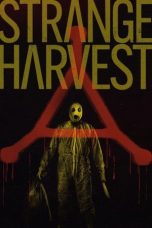When a street-smart FBI agent is sent to Georgia to protect a beautiful single mother and her son from an escaped convict, he is forced to impersonate a crass Southern granny known as Big Momma in order to remain incognito.
Big Momma’s House (2000) Movie Review
Big Momma’s House, directed by Raja Gosnell and released in 2000, is a comedic masterpiece that showcases the exceptional acting talents of Martin Lawrence. The film tells the story of an FBI agent named Malcolm Turner who is tasked with going undercover as a large, elderly woman named “Big Momma” in order to track down a cunning bank robber named Lester V. Gribbs (played by Paul Giamatti). The film’s premise, though seemingly absurd, is executed with remarkable skill and delivers a highly entertaining and comedic experience for the audience. One of the most impressive aspects of Big Momma’s House is the seamless integration of Martin Lawrence’s character transformation.
The author of “Fat Spirit: Obesity, Religion, and Sapphmammibel in Contemporary Black Film” argues that this type of “fat drag” comedy-drama film, in which male comedians portray “overweight” black women, has become a disturbing trend in American cinema between 2000 and 2009. Despite the financial success of these films, the author contends that they are largely unexamined due to their popularity among black audiences, and that the hybridized image of the “sapphmammibel,” a composite character of sap-phire, mammy, and jezebel, is a key transacting figure in these films. While this analysis provides valuable insights into the sociocultural implications of Big Momma’s House, the film’s comedic merits and Martin Lawrence’s remarkable performance cannot be overlooked.
The film’s exploration of the relationship between Malcolm Turner and his target, Lerville Gribbs, is particularly noteworthy. As Malcolm delves deeper into his undercover role, he begins to develop a genuine connection with the Gribbs family, particularly with Lerville’s mother, Sherry. This unexpected emotional depth adds a layer of complexity to the film’s narrative and underscores the versatility of Martin Lawrence’s acting abilities.
In conclusion, Big Momma’s House is a highly entertaining and well-executed comedy that showcases the exceptional talents of Martin Lawrence. While the film’s portrayal of the “sapphmammibel” character may raise some sociocultural concerns, as outlined in the scholarly source, the film’s comedic merits and Lawrence’s remarkable performance cannot be denied.
















